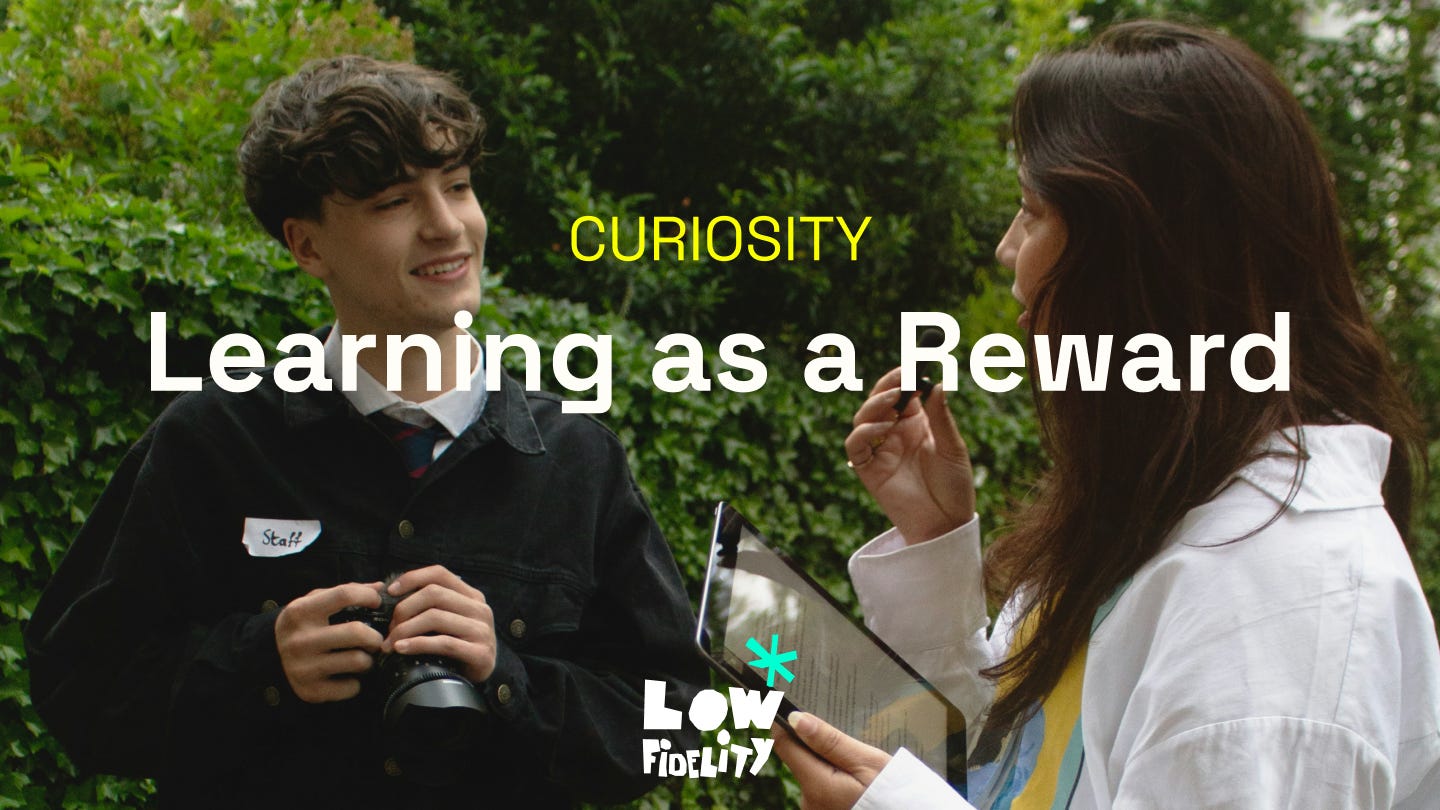Learning as a Reward
Exploring how to make a real connection with the people we meet and being delighted in what we discover.

Does small talk feel awkward and shallow to you?
If so, I'm right there with you. Making pleasantries and asking surface-level questions feels like a waste of time.
But why, you ask?
Because we want our conversations to have meaning and depth, to learn something new, and not just skip rocks on the surface. We want to learn something interesting. We want to make the best of our time together.
This is why I found Rob Walker's short talk, called Ask ‘Craft’ Questions on the Waking Up app interesting. The talk clicked with me because I know I appreciate moments where someone asks me deeper and thoughtful questions to make a real connection instead of making small talk, which I know won’t go anywhere.
Rob Walker is the author of the book and newsletter titled The Art of Noticing, in which he invites readers to pay close attention to everyday curiosities that most of us tend to overlook.
In his talk, Rob shares that bringing awareness and presence to the conversations we have with people can bring new possibilities instead of being lost in our own thoughts, even though we are physically nodding and acting as if we are listening.
Rob shares three approaches we can take when asking questions, which are:
1. Ask craft questions
The goal of these questions is to elicit surprising details as well as show the other person you are actually interested in what they share.
Instead of asking "How is your job going?" we can ask a researcher, for example, "What is it like to uncover hidden needs from talking to people?"
2. Ask deep questions
As Rob mentioned, "If you share something meaningful and important, you are likely to get something meaningful and important in return."
When we go directly to the deeper questions, such as "What are you passionate about?" we invite the other person to go directly to what is meaningful to them and can quickly make a connection.
"When we keep questions too neutral, we may be underestimating the potential for real engagement." - Rob Walker
3. Ask imaginative questions
These questions have the potential to surprise and engage us.
These questions give people room to be creative with their answers, such as this one that Rob mentioned his friend used as a writing prompt for a middle school class: "If you were a potato, how would you want to be prepared?" You can imagine the imaginative and colorful answers by the students.
The goal of all these types of questions is to make us want to ask more questions and be fully engaged with the people we meet, so we can make deeper connections with each other.
The key, however, is to be fully present and engaged in the conversation in that moment and to be genuinely interested in what the other person is sharing.
We can skip the small talk, but first we must do our part and be interested in what others share with us.
So the next time you find yourself slipping into small talk, try asking a craft, deep, or imaginative question.
You may be surprised by what you discover.
In stillness, find your next step.✊🏽
Low Fidelity explores the inner game of creativity through mindsets, mindfulness, and personal growth, drawing on honest stories and lessons from lived experience. Inspired by a Zen approach, it invites presence, patience, and simplicity into the creative process.
Founded and led by Rizwan Javaid, Low Fidelity offers reflections and insights to help readers navigate their own creative and personal journeys with clarity, intention, and a sense of calm focus.



